by Doc Justice
In 1972, George Carlin delivered his famous monologue, “Seven Words You Can Never Say on Television.” Today, there is one word that encompasses all of the seven. This one word elicits groans, sighs, rage and disgust.
Reality. As in, reality TV. Gross!
It is the bastard genre of television, where nobody claims responsibility for the lack of parenting. Its fans only confess begrudgingly, its detractors denounce it with gusto. More often, viewers will cry “FAKE!” as one argument against the entire category. Yet, here we are with 352 seasons of Big Brother shot and aired around the world. That number is not an exaggeration.
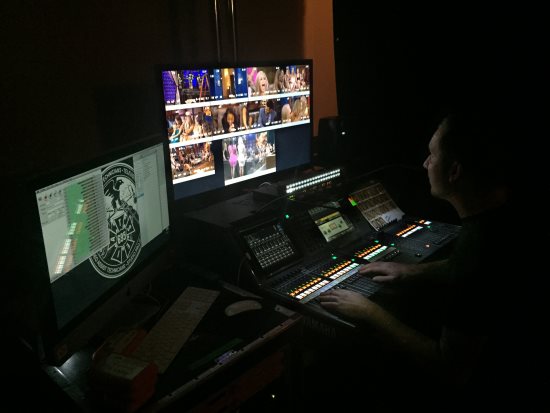
While all of planet Earth has agreed that reality TV is to be only enjoyed as a guilty pleasure; there are many sound mixers making their living from it. What are the skill sets needed to be a reality TV Mixer?
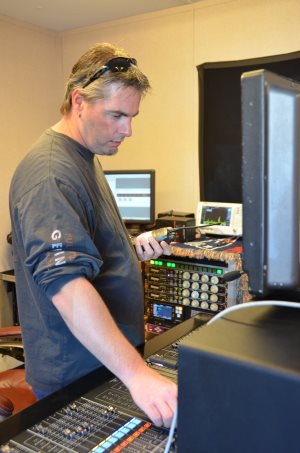
To answer that, we have to take a closer look at reality as a whole. After all, can a docu-follow such as Real World be treated the same as American Idol, Survivor, What Not to Wear or My Cat From Hell?
Every one of these productions is as different as the individuals who record the dialog. They offer unique challenges and custom workflows, and the people who are tasked with recording these shows must be creative, technically adept, quick to act and often, physically fit.
They are known as Audio Supervisors, and as the heads of their department, they have many of the same responsibilities as Production Sound Mixers on narrative sets. They must choose their gear, manage their sound team, interface with directors and producers, and coordinate with post.
On set, the Audio Supervisor is a different animal altogether. Instead of the usual team of three, the Audio Supervisor might work with a department ranging from one to upward of twenty crew members.
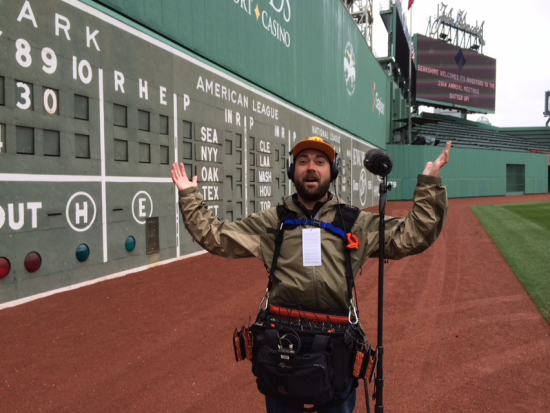
On the docu-follow show Esquire’s Best Bars in America, Audio Supervisor Justin Brunnler works as a one-man band. Justin mic’s up the talent, sends mixes to camera, booms the public and is responsible for all of the audio that ends up on-air. Staying compact is key, since Justin maneuvers through the bars to boom the patrons as they order drinks. His bag has everything at his disposal, a Sound Devices 664 with Lectrosonics 411a receivers with sends for camera and IFB. Production typically visits three bars per shoot day in any given city, so it can be very hectic. His producers put a lot of trust in him, and he has rewarded them with two seasons of successful work. The producers could call a Sound Mixer in any of the cities that they travel to. They could probably get somebody cheaper to take the job. However, they insist on calling Justin, because the risk isn’t worth it to them. Despite all the hours and travel, his demeanor and work ethic are of utmost importance. Justin delivers quality audio with a smile every time.
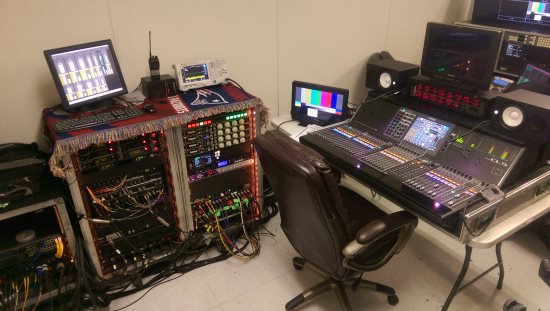
ABC’s The Bachelor has aired eighteen seasons, and that doesn’t include all of its spinoffs. Audio Supervisor Jeff Fusting, multitracks the audio for thirty-two individuals including the contestants, host and bachelor. Working with a Yamaha CL 5 in the house and a Yamaha CL 1 on the road, Jeff is able to rout all of his record tracks, to the story producers who are monitoring story beats, and the director. Those thirty-two frequencies of cast transmitters are only the start. There are also 12 ENG rigs each consisting of a Sound Devices 552, 4 Lectrosonics 411a receivers and UM400a transmitters for camera hops and IFB. Along with the stereo camera sends and IFBs, there are a total of sixty-three frequencies floating in the air at any given time. Yet, coordinating those frequencies is a simpler task compared to staffing the show. Shooting takes place close to twenty-four hours a day, so scheduling more than twenty Sound Mixers per season can be a challenge. The team is vital to a smooth operation, and Co-supervisor Dan Norton helps to coordinate the ENG Mixers. If it all stopped there, it would be easy. Throw in the carnets, the earwigs, the PLs, and of course, the bikinis, and it is plain to see how difficult it is to capture audio for this show. Yet Jeff is there, season after season, making it happen efficiently and effectively.
To change gears completely, take a look at American Ninja Warrior on NBC. This is another beast of a show, with microphones all over the place. John Steigerwald collaborates with rental house Clair Broadcast to create a system that doesn’t miss a word or a splash. Capturing all of the sounds is no simple feat as it is one big obstacle course that contestants must race through. John uses shotgun mics including Sennheiser 416P and plant mics like the Shure SM91 to not only capture the dialog, but all of the sounds in the obstacle course. His A2s run the course alongside the contestants with parabolic dishes to make sure no footstep is missed. Talent are wearing Sennheiser SKM5200s with Neumann capsules. Since the show sets up its giant obstacle course in cities across the country, above all else, efficiency in engineering and packing are key. All of the rack cases, mics, wireless and recorders have been whittled down to just a combination of eleven racks, trunks and workboxes. John’s extensive background in touring has led to an expertly finetuned package. The Audio Supervisor job on this show is as much of a challenge as climbing Mount Midoriyama itself. Audio Supervisors in reality TV must always take advantage of new technologies and systems. Multi-boxes begat Aviom Digital Snakes, which gave rise to MADI and Dante. Routing audio to different cameras, decks, Producer IFBs, Story Stations and PL is paramount to the job. Data management, mic wrangling and on-the-fly troubleshooting are all part of the everyday process. Sometimes it is a wonder how the jobs are accomplished. These productions learn very quickly that hiring the right Audio Supervisor is the single most important step toward sound satisfaction.
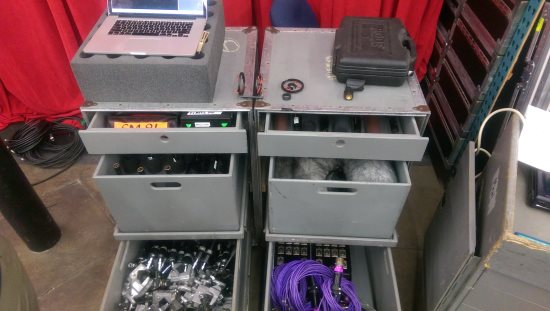
The job of the reality TV Audio Supervisor is really not too different than that of the narrative Production Sound Mixer, and yet, it is. Audio Supervisors work as hard and care just as much as those in the scripted world. One isn’t better than the other, one just presents a different myriad of challenges than the other. The average Audio Supervisor is much more than the shows that require the “sound-mule” to wear one hundred pounds of gear.
Reality TV may have earned its own stereotype as dirty and cheap, but all Audio Supervisors should be applauded for their work. Next time you talk to somebody who makes their living off of reality TV, strike up a conversation and ask them about it.
Just don’t do it in public, or somebody might think you actually watch the stuff.